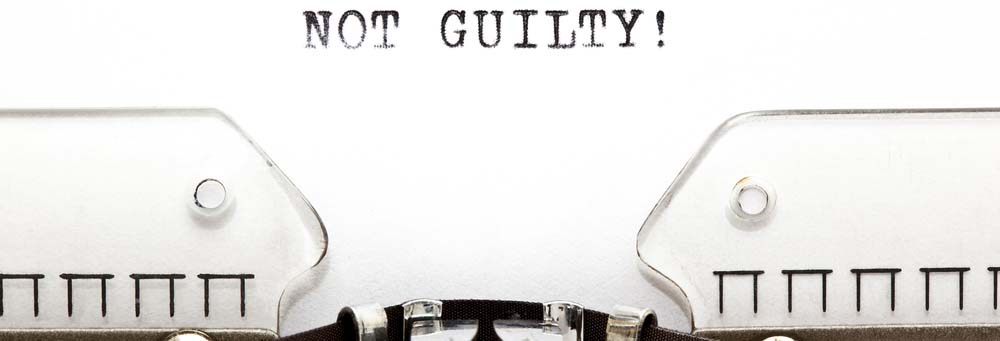Contact Us
KOGARAH OFFICE
Suite 309 – 310, Level 3
13A Montgomery Street
KOGARAH NSW 2217
SYDNEY CITY OFFICE
Ground Floor
54 Martin Place
SYDNEY NSW 2000
Email: solicitors@gmhlegal.com
Phone: (02) 9587 0458
Facsimile: (02) 9587 2936
Police Powers
The main roles of the NSW Police Force are to prevent, detect and investigate crime, to monitor and promote road safety, to maintain social order and finally to perform and coordinate emergency/rescue operations.
Police have a lot of powers to help them carry out their work. These powers are governed by the Law Enforcement (Powers and Responsibilities) Act 2002 (LEPRA).
Under the LEPRA 2002, in order to make an arrest, a police officer has to be satisfied that ‘arrest is reasonably necessary’.
Previously, there had to be a factual basis for suspicion before an officer could make an arrest without a warrant.
Under the amendments, police are now able to arrest suspects for a number of reasons if they believe it “reasonably necessary” including:
- To enable enquiries to be made about a person’s identity, or if they believe that the identity information given is false.
- To prevent a person fleeing from police officers or the scene of a suspected crime.
- To protect the safety and welfare of any person.
- To preserve evidence of the offence or prevent evidence being fabricated.
- For reasons of the severity or nature of the offence.
- To prevent harassment or interference with anyone who might give evidence in the matter.
- To obtain property in relation to an offence that is in the possession of the person being arrested.
Prior to these amendments being brought into effect, police had much more limited powers of arrest.
There had to be a factual basis for a reasonable suspicion that a person had just committed an offence, was in the act of committing an offence, or was about to commit an offence before they could be arrested.
We hope the following information will help you understand these powers and what rights and responsibilities you have in different situations.
SEARCH
If the police does not have a warrant to search you, they might ask you if you will let them search you. This is called ‘search by consent’, you can say no.
However in specific situations, Police can search you without your consent if they have a good reason to believe that you have:
- Prohibited drugs
- Something stolen or unlawfully obtained
- Something that was, or might be, used in a serious crime
- Knives, weapons or other ‘dangerous implements’.
At GMH Legal, we believe that if you are searched by the Police, you should cooperate. If you do not comply with the search you may be committing an offence.
There are 3 different types of searches: a pat down search, a strip search and an internal body search. Special provisions apply if the person being searched is aged between 10 and 17 or intellectually impaired.
If the Police are going to search you, they should:
- Inform you of the reason they are searching you and the name and the station of the person searching you.
- Usually have a person of the same sex as you perform the search
- They should not make you remove any clothes (except outer clothing) unless they have a good reason to suspect that it is necessary and urgent.
Please note that the Police are allowed to search you again at the police station if you are arrested.
What is a pat down search?
Police can pat you down, ask you to remove your outer clothing and shoes, look into your clothing and belongings and use an electric metal detection device. They can also ask you to shake your hair and open your mouth.
What is a strip search?
This is when the police officer removes and searches all of your clothing. Such search will usually be carried out if the police are looking for something they could not find in a pat down search.
A strip search must be carried out in a private place, usually at a police station. If you are under 18, a parent, guardian or an independent third person must be with you. If you have cognitive disability, an independent third person must be with you.
What is an internal body search?
An internal body search is a forensic procedure which consists in searching inside your body.
If you agree to do it, only a doctor who is the same sex as you can do the search.
Please note that you do not have to agree with an internal body search, the police must get a court order if you refuse.
For more information, please refer to Legal Aid’s ‘Getting searched’ section.
ARREST
You must go with the police if you are under arrest. The police can charge you with ‘resisting arrest’ if you try to stop them from arresting you.
A police officer can arrest you if:
- You are committing an offence
- You have or they have reasonable grounds to suspect that you have committed an offence
- You are breaching the peace
- You have breached your bail conditions
- A warrant has been issued for your arrest
- An Apprehended Violence Order (AVO) must be served on you
When arresting you, the police must tell you that you are under arrest, the reasons for being under arrest and the police office must identify him or herself (name and place of duty).
At GMH Legal, we suggest that, if the police officer arresting you does not give you these details, you remain calm and not get into a dispute with them. Instead you can lodge a complaint later.
If you are arrested, it is important:
- Not to resist arrest
- Not to yell, swear or be abusive
- Not to answer any questions except to give you name and address
- Not to say anything without legal advice
- Not to sign any statement or document or make any statement without legal advice
- Not to plead guilty without legal advice
- To ask why you are being arrested
- To give your correct name and address
- To ask the police for a telephone so you can contact a lawyer
- To ask for bail
How much force can the police use to arrest me?
A police officer may use as much force as is necessary to arrest you. However, please note that unreasonable force is considered an assault.
A police officer may handcuff you after arrest if you attempt to escape or if the police officer thinks you may escape.
If I resist arrest, what are the consequences?
At GMH Legal we believe that, even if you don’t think that you are guilty of an offence or that you should be arrested, it is wise to submit to the arrest.
It is an offence to resist arrest, in addition, if you use violence you may be charged with assaulting police.
For more information please refer to Legal Aid’s ‘Police Powers’ section and the NSW Young Lawyers ‘Know your rights’ card.
CUSTODY
After arrest, the police will take you into custody. This means the police officer will take you to a police station, custody centre or the police cells in Court. You may be handcuffed on your way there.
During custody, the police may:
- Ask you for your name and address
- Ask you to give a statement
- Ask to photograph you
- Interview you
- Fingerprint you
- Search you
- Charge you and possibly give you bail
While in custody, you will be given the opportunity to make 2 phone calls: 1 to a lawyer and 1 to a friend or relative. While you are making your call, the police must give you a private space where your conversation cannot be heard.
However, please note that the police officer might not let you call anyone if they arrested you for a drink driving/drug driving matter or if they reasonably believe that your phone call may help another person involved in the offence get away, lose/change evidence or put other people in danger.
How long will I stay in custody?
The police can keep you in custody for a reasonable time before they charge you, but the law doesn’t say what a reasonable time is.
The length of your stay in custody will depend on the seriousness of your offence and how long it takes them to interview you.
If you were arrested by the police for being intoxicated in a public place, you will normally only be kept in custody until the police think you are sober enough to leave (usually 4 hours).
For more information, please refer to Legal Aid’s ‘Being held in custody’ section.
INTERVIEW
The police may interview you as a possible suspect about the offence they have arrested you for. Police officers must always read out your rights before they begin the interview, this is called ‘a caution’.
You must give your name, address and date of birth at the beginning of the interview.
Be very careful when you answer question as anything you say can be used against you later. The police will ask you questions from their angle, your point of view may not be recognized.
What is the caution that police officer must use?
Before questioning you, the police officer interviewing you must tell you the following:
- ‘I must inform you that you do not have to say or do anything but anything you say or do may be given in evidence’
- ‘Do you understand that?’
- ‘You may communication with or attempt to communicate with a friend or a relative to inform that person of your whereabouts’
- ‘You may communicate or attempt to communicate with a legal practitioner’
Do I have a right to silence?
You have a general right to silence. This means that you can choose to either answer police questions about the offence or remain silent.
You can choose to make a ‘no comment’ interview and the police cannot use this against you. At GMH Legal we suggest that you elect to either participate actively in the interview or not at all. It will not help your case if you answer some questions but not others.
Will my interview be recorded?
If the police have charged you with or are questioning you about a serious offence, the interview will be recorded. It can be written, videotaped or audiotaped.
For a minor offence the police officer does not have to record what you say for it to be used as evidence. They can simply write down the questions and your answers to them.
If your interview is written down instead of taped, please read the document very carefully and correct any mistakes.
You have the right to ask for a tape-recorded interview if you do not want to be video-recorded. The police must comply with your request, except if you are under arrest for a serious charge.
For more information, please refer to Legal Aid‘s ‘Being questioned’ and ‘Answering questions from the police’ sections.
COMPLAINTS ABOUT NSW POLICE
You have a right to be treated fairly by the police but on some occasions they may not use their powers appropriately or conduct themselves properly. If you believe you have not been treated fairly, you have the right to make a complaint against them.
When should I make a complaint?
While there is no time limit to make a complaint, we encourage our clients to make their complaint as soon as possible after the incident. However your arrest arises out of an arrest or a prosecution for an offence, we suggest that you discuss it with your legal representative beforehand.
How should my complaint be formulated?
We suggest that the following information be included in your complaint:
- Date, time and location of incident
- Officer’s name and/or badge number
- Contact details of potential witnesses
- Vehicle registration numbers
- Details of conversation
- Copies of medical reports and photographs
- Copies of letters exchanged if any
Please make sure you sign and date the complaint and keep a copy with you.
Who should I send my complaint to?
You can contact the NSW Police force Customer Assistance Unit by telephone on 1800 622 571. We encourage you to make notes of the discussion and record the name of the person you speak to, what they agree to do about your complaint and ask for a receipt number or complaint number.
You can lodge a formal complaint in writing by completing the ‘Police Complaint form’ and leaving it at your local police station or mailing it to the following address:
Customer Assistance Unit
POX Box 3427
Tuggerah BSW 2259
You can lodge a complaint online on the NSW Police Force website.
Finally, if you wish to lodge a complaint with an agency other than the NSW Police Force, you can contact the NSW Ombudsman or the Police Integrity Commission.
For more information, please refer to Legal Aid’s ‘Complaints about the police’.
Call the experienced team at GMH Legal to assist you in your matter.
A free consultation with GMH Legal is an opportunity to gain deep insights into your legal situation and all of your options.
Why Choose GMH Legal?
- Over 60 years of combined legal experience
- Outstanding track record with a winning approach
- First appointment is always free
- Meet our team now.






